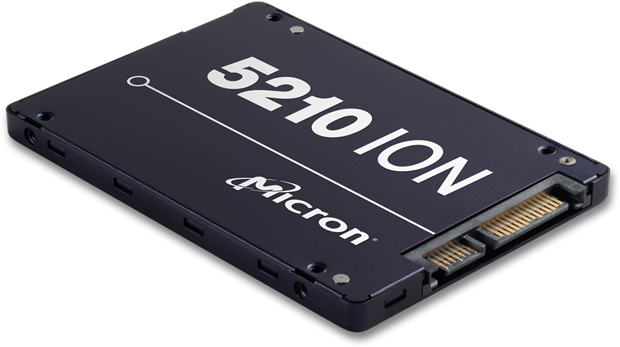 INFRA
INFRA
 INFRA
INFRA
 INFRA
INFRA
Chipmaking rivals and sometime partners Intel Corp. and Micron Technology Inc. said today they’ve begun the production and shipment of the latest generation of their jointly produced NAND flash memory chips for solid-state drives.
The companies unveiled what they say are the industry’s first quad-level-cell or QLC NAND flash chips, sporting a 64-layer 3-D structure that allows them to achieve a terabit of density per die, the largest capacity on a flash chip so far. In addition, the companies said they’re working together on producing an even bigger chip, a 96-layer 3-D NAND that allows for even higher densities per die.
Previous 3D NAND chips were based on triple-level-cell NAND and 3-D fabrication, so the move to quad-level cells, in which four bits of information can be stored on a single cell, is a significant increase in storage capacity per cell. The payoff is a slight reduction in write performance because programming the cells becomes more complex. The new chips also have slightly less endurance, the companies said.
Intel said it will make an announcement regarding the launch of its new QLC NAND chips at the Flash Memory Summit taking place in Santa Clara, California, Aug. 6-9. Micron, on the other hand, is already shipping its first products containing the new tech. The company today introduced its 2.5-inch 5210 Ion SATA enterprise solid-state drive, which it says is the first SSD in the industry built on QLC NAND.
Micron’s 5210 Ion is available in a range of capacities, from 1.92 terabytes at the low end to 7.68TB at the highest. The company reckons these densities will enable data center operators to run read-heavy workloads with a much higher storage capacity per rack node, with better performance and lower latency than any previous SSD or hard disk drive.
“Businesses are finding they can get to answers much more quickly and serve their customers better by using faster SDDs and, in the future, storage class memory,” said Patrick Moorhead, principal analyst at Moor Insights & Strategy. “This is driving the insatiable demand for faster storage.”
In a benchmark test provided by Micron, the company claimed a single 5210 Ion SSD can deliver a 2.2 to 3.9 times performance boost on read-heavy workloads using the Apache Cassandra database, compared to four traditional 10,000 revolutions-per-minute hard drives.
The announcement from Micron was well-received by its investors as its shares spiked almost 4 percent in afternoon trading. Micron also raised its financial guidance, saying it expects third-quarter sales of $7.7 billion to $7.8 billion, up from its previous forecast of $7.2 billion to $7.6 billion. The company also said it would buy back $10 billion in shares, further pleasing investors.
Holger Mueller, principal analyst and vice president at Constellation Research Inc., said the new SSDs from Micron and Intel look likely to fill a gap in the data center between hard drives and random-access memory.
“The challenge has been that SSD capacity has been limited, but with the recent advances, the ‘SSD Valley’ is maybe catching up the HDD and RAM mountains to the left and right,” Mueller said. “That’s good news for enterprises that need to store more and more data to remain competitive in the era of digital transformation. SSD fits right into the need of keeping information accessible in a fast and efficient way, as it’s cheaper than RAM and faster than HDDs.”
Micron said it’s shipping its 5210 Ion SSDs to select customers today, ahead of general availability later this fall.
THANK YOU